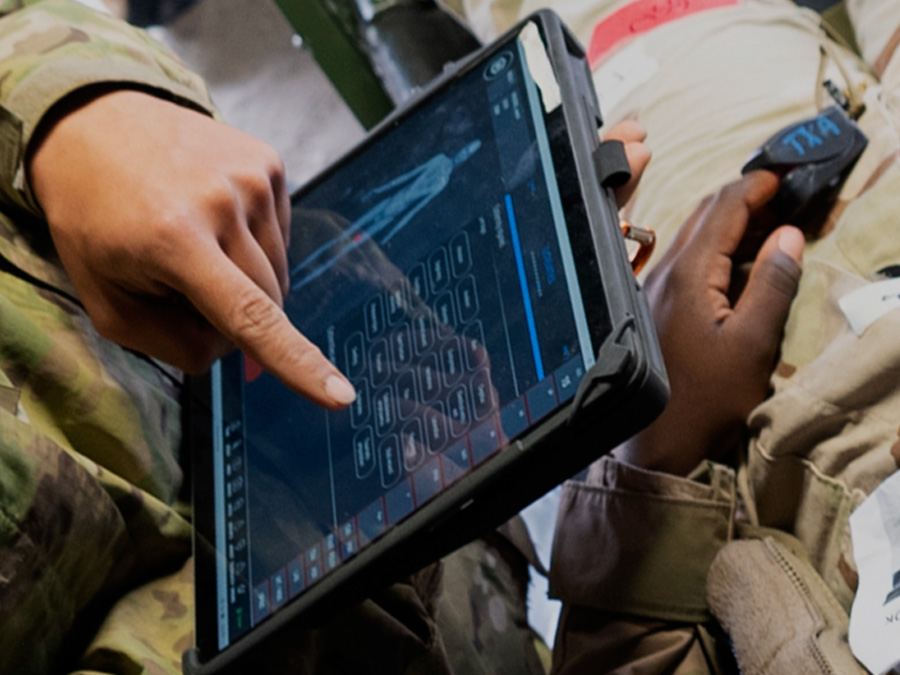The mission of the Biological Technologies Office (BTO) is to foster, demonstrate, and transition breakthrough fundamental research, discoveries, and applications that integrate biology, engineering, computer science, mathematics, and the physical sciences.
BTO’s investment portfolio goes far beyond life sciences applications in medicine to include areas of research such as human-machine interfaces, microbes as production platforms, and deep exploration of the impact of evolving ecologies and environments on U.S. readiness and capabilities. BTO’s programs operate across a wide range of scales, from individual cells to the warfighter to global ecosystems.
BTO responds to the urgent and long-term needs of the Department of War (DoW) and addresses national security priorities.
BTO’s office-wide Broad Agency Announcement offers a mechanism for researchers to reach DARPA with an idea that may fall outside of BTO’s current priorities, but that the proposer feels could be valuable to national security. Proposals against an office-wide BAA are received on a rolling basis.
BTO is interested in submissions related to the following areas:
- Discovering and leveraging novel findings from biotechnology, biochemistry, molecular biology, neuroscience, psychology, cognitive science, and related disciplines to advance treatment and resilience in neurological health and optimize human performance.
- Understanding and improving interfaces between the biological and physical world to enable seamless hybrid systems.
- Leveraging and translating a biological system’s underlying design rules, functional processes, and/or means of interactivity to macroscale systems.
- Developing new tools and capabilities for forward engineering of biological systems, such as cells, tissues, organs, organisms, and complex communities, to both develop new products and functional systems, as well as to gain new insights into underlying mechanisms.
- Developing new platform technologies that integrate, automate, and miniaturize the collection, processing, and analysis of biological and chemical samples.
- Developing technologies that leverage ecological diversity and/or help support human operations in extreme environments (e.g., ocean, desert, space, Arctic).
- Developing and validating new theories and computational models that identify factors and principles underlying collective and interactive behaviors of biological organisms at all scales from individual cells to global ecosystems.
- Understanding the dynamics of population and ecosystem behavior to preserve equilibrium, provide strategic opportunity, or avoid catastrophe.
- Developing and leveraging new technologies that can be applied to agricultural ecosystems for production stabilization, by improving quality or reducing losses from pathogens or pests.
- Developing and leveraging new insights into non-human biology across and between populations of microbes, insects, plants, marine life, and other non-human biologic entities.
- Developing technologies to leverage biological systems and enhance the ability to acquire and maintain critical and strategic organic and inorganic materials.
- Developing new technologies and approaches that ensure biosafety, biosecurity, biological cybersecurity of biological hardware, data, and information, and protection of the bioeconomy.
- Understanding emerging threats to global food and water supplies and developing countermeasures that could be implemented on regional or global scales.
- Developing new technologies to treat, prevent, and predict the emergence and spread of infectious diseases that have the potential to cause significant health, economic, and social burden.
- Developing and leveraging technologies to advance continuous or near-continuous monitoring of an organism’s physiology to elucidate mechanisms of human resilience.
- Developing new technologies for the rapid manufacturing, delivery and distribution of large molecule drugs such as biologics.
- Leveraging biology to provide new tactical and strategic maritime operational advantages.
- Employing novel applications of biological components in historically engineered military systems.
- Developing an understanding of mechanisms that organisms use to assess and interact with their environment.
- Other biological technology topic areas that fit the national security scope of BTO’s mission.
Proposed research should investigate leading edge approaches that enable revolutionary advances in science, technologies, or systems at the intersection of biology with engineering and the physical and computer sciences. Specifically excluded is research that primarily results in evolutionary improvements to the existing state of the art. BTO seeks unconventional approaches that are outside the mainstream, challenge assumptions, and have the potential to radically change established practice, lead to extraordinary outcomes, and create entirely new fields.
Potential proposers can view the solicitation at: https://go.usa.gov/xmKSe.


